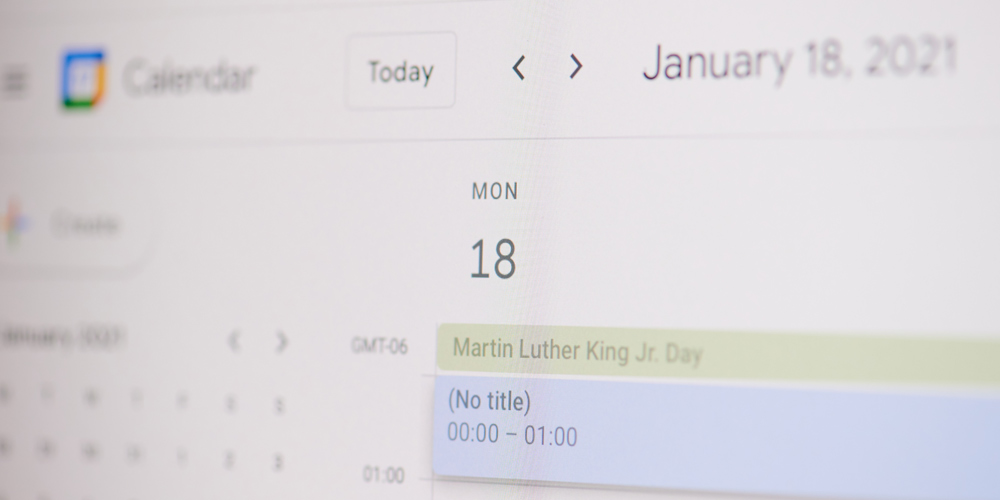Effective calendar management is a cornerstone of successful business operations. An efficiently managed calendar ensures that every appointment and meeting is accounted for and optimizes daily workflows, enhancing overall productivity. With a well-structured approach to calendar management, professionals can avoid missing crucial deadlines, double-booking appointments, and experiencing increased stress levels. This disorganization can lead to poor time management, decreased productivity, and potentially, a tarnished professional reputation. Implementing tools like day planners, apps, and popular platforms like Google Calendar and Outlook Calendar can transform chaotic schedules into well-oiled machines supporting business and personal growth.
How to Choose the Right Calendar Tool for You
In today's digital age, choosing the right calendar tool is essential for effective business management. Digital calendars like Google Calendar and Outlook Calendar stand out due to their functionality, user-friendliness, and integration capabilities. They can help you create systems in your business. Here’s why these tools are so beneficial and who might prefer each:

What are the Benefits of Google Calendar & Outlook Calendar?
- Accessibility: Both calendars offer cloud-based accessibility, meaning you can access your schedule from any device, anywhere, at any time. This is particularly crucial for professionals in Spokane, WA, who might move between different workstations or work remotely.
- Integration: These tools seamlessly integrate with other apps and services, enhancing productivity and time management. For instance, you can sync your email, set reminders, and even attach documents to appointments.
- Sharing and Collaboration: Both platforms allow you to share your calendars with others, making it easy to schedule meetings and manage team projects. This feature is invaluable for teamwork, ensuring everyone is aligned with deadlines and events.
- Customization: Users can customize views and notifications. Color-coding different types of events—like personal time, business meetings, or breaks—makes it easy to glance at a day or week and prioritize effectively.
Improve Your Time Management with a Private Office
Burbity Workspaces is here to help you build your Spokane business with our private office spaces!

Which Calendar App is Right for Me?
- Google Calendar: This is often preferred by those who rely heavily on other Google services like Google Drive or Gmail. Its straightforward interface and robust functionality make it ideal for entrepreneurs and startups who need a reliable, no-cost option.
- Outlook Calendar: This calendar is typically favored by individuals who use Microsoft products for business communications. It is particularly beneficial for those in corporate settings where extensive scheduling features and integration with Microsoft Office are required.
While these two are the most popular, other calendar apps like Apple Calendar or more superficial day-planning apps can also be helpful for specific needs. However, for robust management and integration capabilities, Google Calendar and Outlook remain the top choices for busy Spokane small businesses.

Tips to Organize Your Calendar
Effective calendar organization is crucial for maintaining productivity and a healthy work-life balance. Here are some strategies for utilizing digital calendar tools:
Using Color Coding
- Differentiate Commitments: Assign specific colors to different types of commitments, such as meetings (blue), breaks (green), personal time (purple), and urgent tasks (red). This visual distinction helps you quickly assess your day or week at a glance.
- Custom Labels: Most calendar apps allow you to create custom labels with your chosen colors, which can help maintain consistency and ease of recognition across devices.
Planning with Daily/Weekly/Monthly Views
- Overview Planning: Use the monthly view to get a broad perspective of your upcoming month’s workload and balance it accordingly. It helps you spot overly busy days or free days that can be better utilized.
- Detailed Scheduling: Switch to the weekly view for a more thorough planning approach. It allows you to allocate specific times for tasks each day and adjust as needed based on work progression or unexpected commitments.
- Daily Focus: Sort your calendar to give you a to-do list and plan for your daily schedule.
Integrating Sharing and Syncing
- Team Coordination: Share your calendar with team members to coordinate project deadlines, meetings, and availability. This ensures everyone is aligned and can plan their schedules around shared commitments.
- Sync Across Devices: Make sure your calendar syncs across all your devices so updates or changes made on one device are reflected everywhere. This keeps you on track no matter which device you are using.
Time Blocking
- Allocate Blocks of Time: Divide your day into blocks dedicated to specific activities. For example, morning hours could be reserved for deep work (critical tasks requiring focus), while afternoons could be for meetings and collaborative tasks. Be sure to include time to get to different meeting rooms.
- Consistent Breaks: Schedule regular breaks to avoid burnout. For instance, after every 90 minutes of work, a 10-minute break can be revitalizing.
- Visibility: If you share your calendar, make these blocks visible to others to communicate when you’re unavailable for work-related queries. This transparency helps set boundaries and respect personal time.

How to Manage Team Schedules with Your Calendar
Effective management of team schedules is crucial for enhancing collaboration and ensuring smooth operations within any organization. At Burbity Workspaces in Spokane, WA, leveraging shared calendar tools is a crucial strategy for coordinating schedules and improving communication among team members. Here are some techniques for making the most of these tools:
Techniques for Sharing Calendars Within a Team
- Centralized Calendar Access: Use a shared digital calendar that is accessible to all team members. This central reference point helps everyone stay updated on upcoming meetings, deadlines, and events.
- Permissions and Visibility: Set appropriate viewing permissions based on roles and needs. For example, team leaders might need edit access to everyone’s calendars, while team members might only need to view each other’s availability.
- Real-Time Updates: Ensure that the calendar tool provides real-time updates. When one member updates or adds a new event, it should immediately be visible to others to avoid overlaps or scheduling conflicts.
- Color-Coded Entries: Utilize color coding to differentiate between types of meetings, team members, or project stages. This visual aid helps in quick comprehension and decision-making.
Mastering Business Calendar Management
Effective business calendar management is essential for maintaining productivity and ensuring operational efficiency, especially in dynamic work environments like Burbity Workspaces in Spokane, WA, on Sprague. Online tools help organize daily tasks, meetings, and important deadlines through features like color coding, real-time syncing, and customizable views. Strategies like time blocking and prioritizing ensure that personal time and work commitments are balanced optimally.




